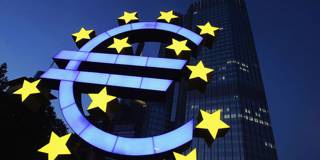With Hungary and Poland vetoing the European Union's budget and COVID-19 recovery fund, the case for issuing perpetual bonds has never been stronger. While the EU cannot currently do so, given uncertainty about its future, many of its member states can and should.
NEW YORK – I have written a lot in the past about the desirability of the European Union issuing perpetual bonds. But today I am proposing that individual member states should do so.
Right now, it would be impossible for the EU to issue perpetual bonds, because the member states are too divided. Poland and Hungary have vetoed the next EU budget and the COVID-19 recovery fund, and the so-called Frugal Five (Austria, Denmark, Finland, the Netherlands, and Sweden) are more interested in saving money than in contributing to the common good. Investors will buy perpetual bonds only from an entity that they believe will continue to exist for the foreseeable future. That was true of Britain in the eighteenth century (when it issued Consols) and of the United States in the nineteenth century (when it consolidated individual states’ debt). Sadly, it is not true of the EU today.
The EU finds itself in a very difficult situation. It is experiencing a second wave of COVID-19 that threatens to be even more devastating than the first. Member states used up most of their financial resources fighting the first wave. Providing health care and resuscitating the economy will require much more than the €1.8 trillion ($2.2 trillion) in the new budget and recovery fund, called Next Generation EU. In any case, the availability of those funds has been delayed by Hungary and Poland’s veto.

NEW YORK – I have written a lot in the past about the desirability of the European Union issuing perpetual bonds. But today I am proposing that individual member states should do so.
Right now, it would be impossible for the EU to issue perpetual bonds, because the member states are too divided. Poland and Hungary have vetoed the next EU budget and the COVID-19 recovery fund, and the so-called Frugal Five (Austria, Denmark, Finland, the Netherlands, and Sweden) are more interested in saving money than in contributing to the common good. Investors will buy perpetual bonds only from an entity that they believe will continue to exist for the foreseeable future. That was true of Britain in the eighteenth century (when it issued Consols) and of the United States in the nineteenth century (when it consolidated individual states’ debt). Sadly, it is not true of the EU today.
The EU finds itself in a very difficult situation. It is experiencing a second wave of COVID-19 that threatens to be even more devastating than the first. Member states used up most of their financial resources fighting the first wave. Providing health care and resuscitating the economy will require much more than the €1.8 trillion ($2.2 trillion) in the new budget and recovery fund, called Next Generation EU. In any case, the availability of those funds has been delayed by Hungary and Poland’s veto.